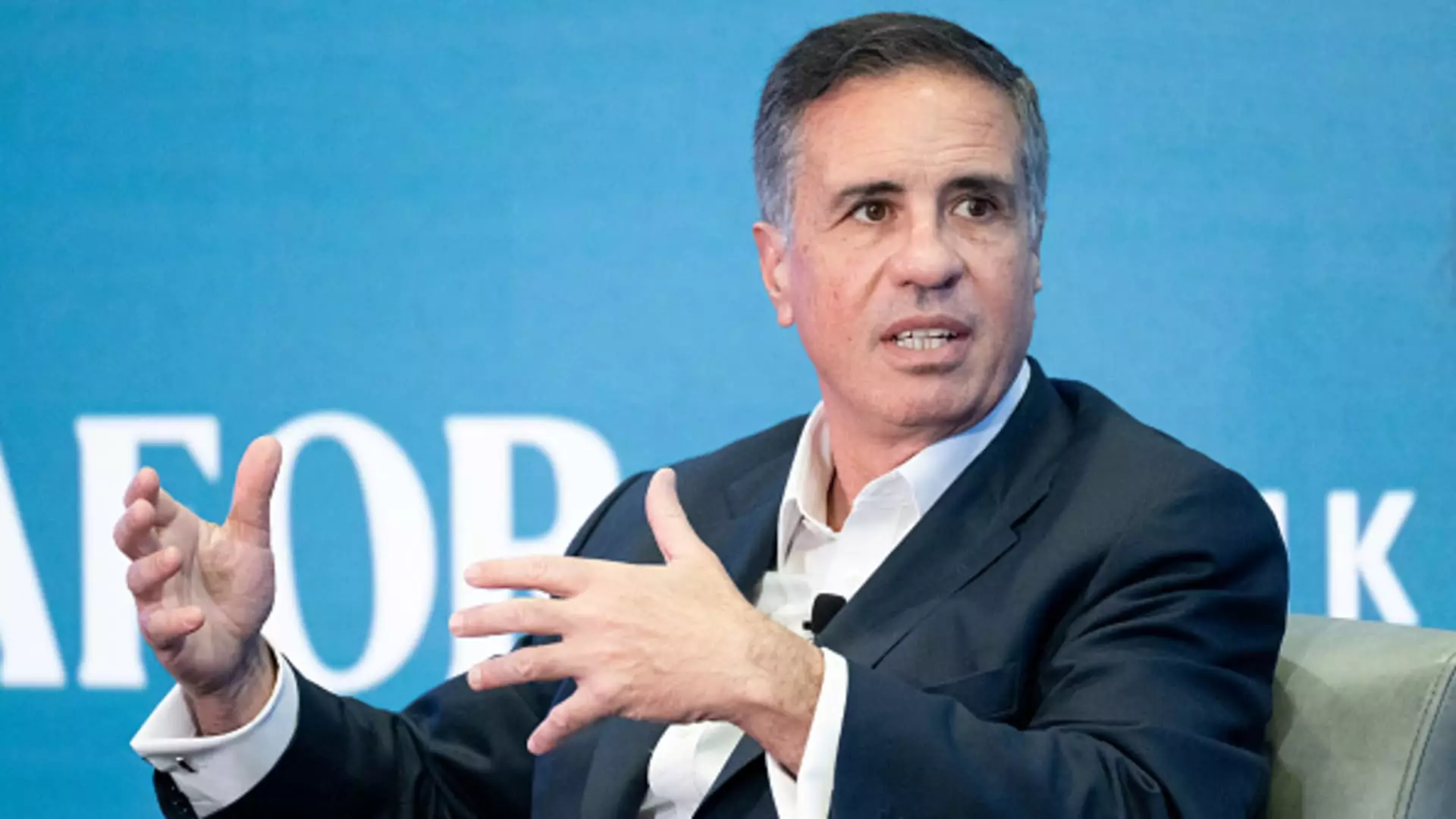JPMorgan Chase shares experienced a 5% decrease following President Daniel Pinto’s announcement at a financial conference regarding the bank’s projections for net interest income (NII) and expenses in 2025. Pinto stated that the 2024 target of approximately $91.5 billion for NII is feasible, but the estimated $90 billion for the next year is “not very reasonable.” He attributed this discrepancy to the anticipated Federal Reserve interest rate cuts, which would impact the bank’s revenue significantly. While Pinto refrained from providing a specific figure, he expressed his belief that the NII forecast would be lower than initially projected.
The decline in JPMorgan’s shares, with more than a 7% drop at one point during the session, marked the most significant decrease since June 2020. As the largest U.S. bank by assets, JPMorgan has outperformed its competitors in recent years due to robust growth in NII, driven by increased deposits and loan activities. However, apprehensive investors are now troubled by uncertainties surrounding the future performance of this prominent banking institution, compounded by broader anxieties regarding decelerating U.S. economic growth.
Net interest income serves as a primary revenue source for banks, representing the difference between interest earned from lending activities and interest paid on deposits. The reduction in interest rates results in diminished yields on new loans and investments, posing challenges for banks to generate profitable returns. While lower interest rates may deter customers from transitioning their funds from checking accounts to higher-yielding options, they also dampen the overall profitability of new assets, creating a complex financial landscape for banks to navigate.
In terms of expenses, the analyst consensus of approximately $94 billion for the following year appears overly optimistic, according to Pinto. He attributed this skepticism to persistent inflationary pressures and the ongoing investments that the bank is undertaking. Pinto emphasized that various factors indicate a probable increase in expenses beyond current expectations, necessitating a reassessment of the projected figures.
JPMorgan forecasted a flat to 2% uptick in third-quarter revenue compared to the previous year, with a substantial 15% surge anticipated in investment banking fees. The relatively stagnant trading performance aligns with Goldman Sachs’ announcement of a projected 10% decline in trading revenue for the quarter, driven by challenging comparisons to the prior year and unfavorable trading conditions encountered in August.
Overall, JPMorgan Chase faces a series of obstacles in meeting its financial targets, primarily attributed to the anticipated impact of declining interest rates on net interest income and lingering uncertainties surrounding expense projections. President Daniel Pinto’s candid remarks at the financial conference have raised concerns among investors regarding the bank’s ability to sustain its competitive edge in the evolving financial landscape.

